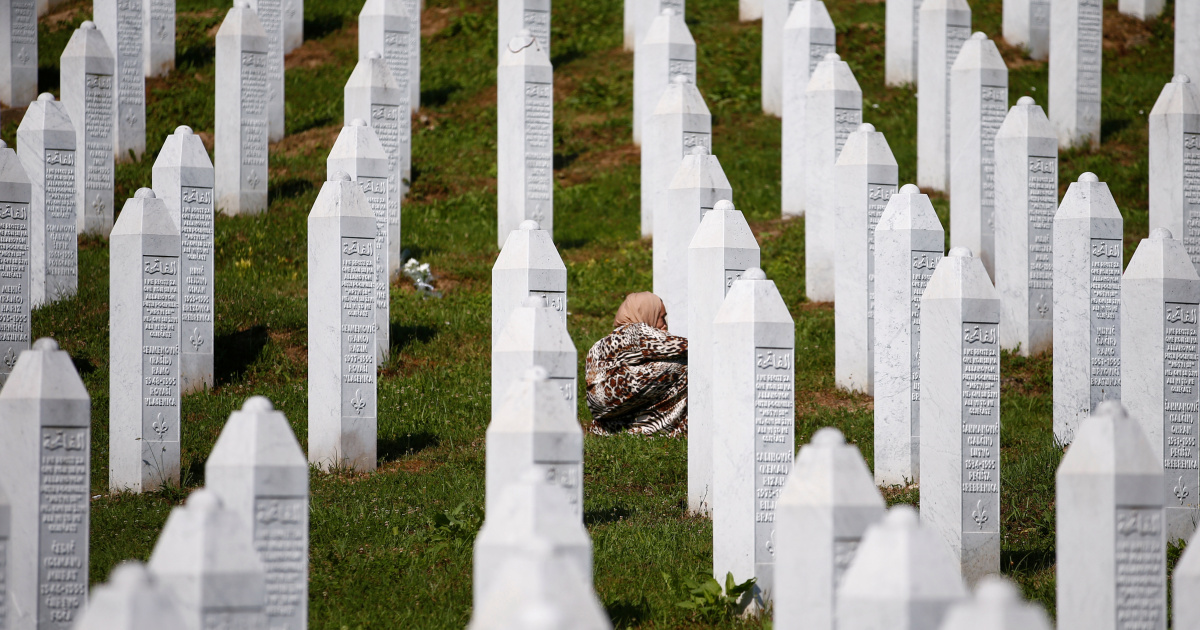Youtube, Twitter say they are taking measures against behaviour that glorifies, minimises or denies the 1995 genocide in Srebrenica, Bosnia.
Twitter and Google intend to remove content that denies the genocide in Srebrenica from their platforms, according to a report by Radio Free Europe (RFE).
RFE reported on Wednesday that Twitter and YouTube, responding to a request by the Institute for Research of Genocide Canada (IRGC), said the companies have a clearly established policy that “sanctions all hate speech”.
On July 28, the IRGC had sent a request to tech giants Twitter and YouTube, owned by Google, requesting them to ban content from their platforms that “denies and distorts the truth about the genocide in Srebrenica”.
“Those who deny the genocide in Srebrenica are humiliating the victims through your YouTube platform, inflicting pain and suffering on the survivors of the genocide, which in return encourages the genocide deniers and future possible creators and perpetrators of the genocide,” director of the IRCG Emir Ramic wrote in the letter to CEO Susan Wojcicki.
The systematic murder of more than 8,000 Bosniaks (Bosnian Muslims) in Srebrenica by Serb forces in July 1995 was ruled as an act of genocide by the International Criminal Tribunal for former Yugoslavia (ICTY) and the International Court of Justice.
But denial of the genocide in Srebrenica, along with trivialisation and revisionism of historical facts has become mainstream and widespread in Serbian and Bosnian Serb societies, which has also been reflected online.
“We have a clear and established hate speech policy that prohibits content that minimises or negates well-documented violent events including the genocide in Srebrenica,” a YouTube spokesperson told RFE.
“If the content is found to violate these guidelines, we will remove it.”
A spokesperson from Twitter told RFE that their hate policy “prohibits a wide range of behaviour”.
“This includes targeting individuals with offensive intentions; calling for violent events, the type of violence where protected categories of people have been victims; or where attempts are made to deny or minimise such events,” the spokesperson said.
“Also, we have a strong policy in cases of glorifying [violence] and we are taking measures against such content and behaviour that try to glorify or praise violence and genocide.”
‘Justice for victims’
According to the IRGC, which has been tracking the content online, most of the genocide denial comes from Serbia, followed by Bosnia’s Serb-run Republika Srpska entity, Russia, and France.
Responding to Twitter and YouTube’s response, Ramic told Al Jazeera that the news is “another victory for the IRGC in the battle against deniers of genocide, falsifiers of historical, judicial and scientific facts about the genocide as well as glorifiers of convicted war criminals”.
“This [serves as] justice for the victims of the worst atrocity since the Holocaust in Europe, the only judicially recognised genocide following World War II.”
The latest news came after Valentin Inzko, then the outgoing head of Bosnia’s Office of the High Representative, banned denial of the Srebrenica genocide in July.
He introduced prison sentences in Bosnia up to five years for anyone who “publicly condones, denies, grossly trivialises or tries to justify” the genocide or war crimes committed during the country’s 1992-1995 international armed conflict.
The new law was swiftly rejected by Bosnian Serb politicians, who threatened to boycott Bosnia’s central institutions.

